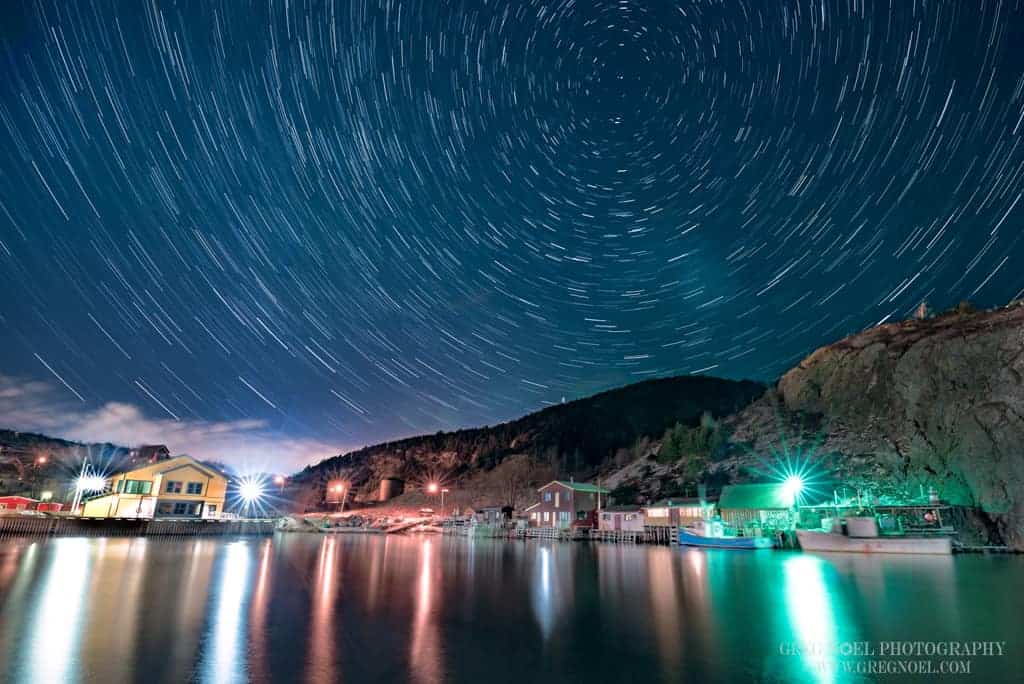
About the Filter
The NiSi Natural Nigth filter was launched in 2017. The distinct filter is designed to block the wavelengths of light created by mercury vapour, sodium and other Low CRI lights that are often used as streetlights. These lights are usually yellow/orange and are the primary cause of light pollution around cities. This makes capturing beautiful nightscapes near cities very difficult.
The NiSi Natural night filter is a glass filter that is coated with a double-sided multi-layer waterproof and oil resistant coating. This reduces ghosting and flaring and also prevents the natural oils on your skin from sticking to and smearing the filter.
The filters are available in a variety of sizes to fit multiple filter holders. You can get the filter in 180mm(7”x7”), 150mm (6”x6”) and 100mm(4”x4”) square varieties, as well as 77mm and 82mm circular versions. The square filters are 2mm thick compatible with most common square filter holders but it is recommended that you use them with one of NiSi’s own high-quality filter holders. 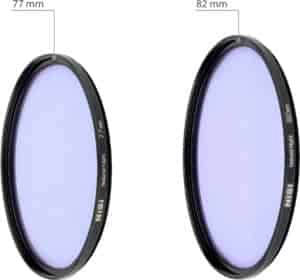
Testing
For this review, I paired the 150mm Natural Night filter with the NiSi 150mm Filter Holder for Nikon 14-24 (Tamron 15-30), and sometimes used a NiSi Adapter right to attach it to my 77mm filter size lenses. An adapter is also available for 82mm lenses. The images were taken with a Nikon D750 and either the Tamron 15-30mm f/2.8 lens or Nikkor 24-70mm f/2.8 Lens.
My initial impressions of the filter and the filter system were wow, these are nice, the filter holder was a high-quality metal frame that fit very nicely onto the Tamron 15-30. The 150mm square filter was solid and fit snugly into the holder. It also came with a nice soft leather holding pouch. I took the filter with me on a handful of night shoots to test it and compare it to shooting without the filter. Initially, I shot in auto white balance, but eventually, I would manually set the white balance to daylight so you can really see the effect the filter has.
The first example I just wanted to compare the difference between the two filters using the same settings and same processing. These two images were each shot with the close to the same settings, each was shot at f/5.6 seconds and ISO 100. The NiSi Natural Night filter reduces the light by about half a stop so I increased the shutter speed from 10s to 15s to make up for the difference. Then I processed the first one in Lightroom using daylight white balance, and some basic adjustments on the shadows, highlights, vibrance and saturation and synchronized the settings to the other one.
As you can see there is a significant difference in the yellow cast caused by the lights of the city. If you also notice in the bottom left portion of the image the green cast of those lights has been eliminated and the lights look a nice natural white. The boats at the dock look their natural colors as well now. You also have an increase in the contrast of the image, especially in the areas that were washed out by strong nearby street lights. But you will also notice that you have a more magenta sky. Personally, I prefer the magenta sky over the yellow/green sky. But that is also an easy adjustment in post-processing.
The next set of images I wanted to see what would happen if I used the Eye Dropper tool in Lightroom to correct the white balance to get the same colors throughout.
So here we have the same image again the only difference was applying the filter. Buth shot using the Daylight white balance and adjusting for the exposure and processessed exactly the same. Once again you have a significant reduction in the yellow cast, you retain more detail in the highlights, but you also still have a slight magenta shift now too.
This is where I was truly impressed with the filter. Using the white balance eye dropper in Lightroom I selected the exact same section of this image to get the snow to look a natural white and to look the same in both images. Even with the color temps matched you can still see a significant difference in the yellows caused by the streetlights. The top image, without the filter, has much harsher yellows and blown highlights caused by the streetlights. The bottom image, with the filter, give a nicer, more balanced tone to the image.
Does Photoshop work just as well?
The next question I asked myself was, do you need the filter, can you just do this in lightroom or photoshop by reducing and adjusting the hues of the yellows in post?
Using Photoshop and Lightroom. I tried to copy the result I got with the filter as best as I could by adjusting the hues and saturation of the yellow tones. Using this method you can reduce the intensity of the yellow lights, but you also reduce the yellow intensity of any object in the scene that is naturally yellow. So you can get it close, but you still don't have the same color balance that is as natural as you would with the Night filter.
Reducing Light Pollution Test
Here is an example showing how the Nisi Natural Night filter reduces the effects of light pollution. I overexposed each of these images to try to bring out more stars in the light polluted skies behind the scene. You can see the filter reduces the light pollutions somewhat. It's difficult to tell from the full-size image, so I cropped in to see better.
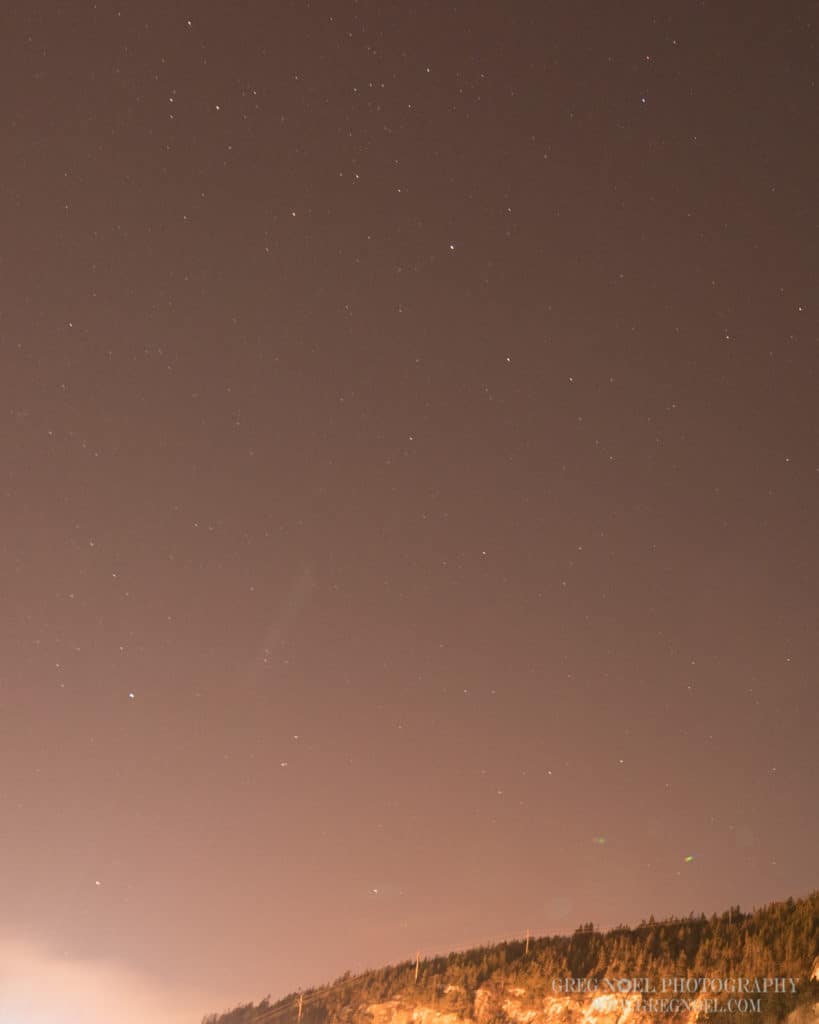
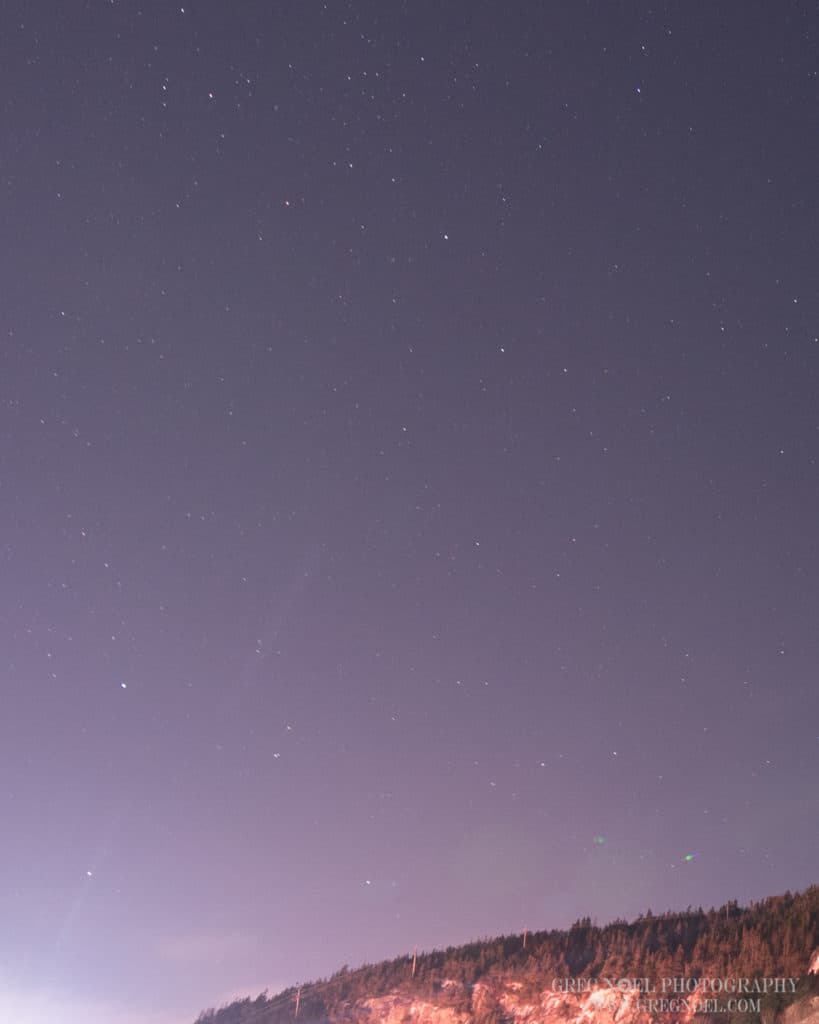
Flaring and Ghosting
The final concern I have when adding a filter to ay lens if will it cause increased flaring and ghosting. So I wanted to put the NiSi Natural Night Filter to this test as well. I set up my camera and 15-30mm lens in a location with bright lights that will cause flaring without the filter. and then took an additional shot from the same location with the filter on.
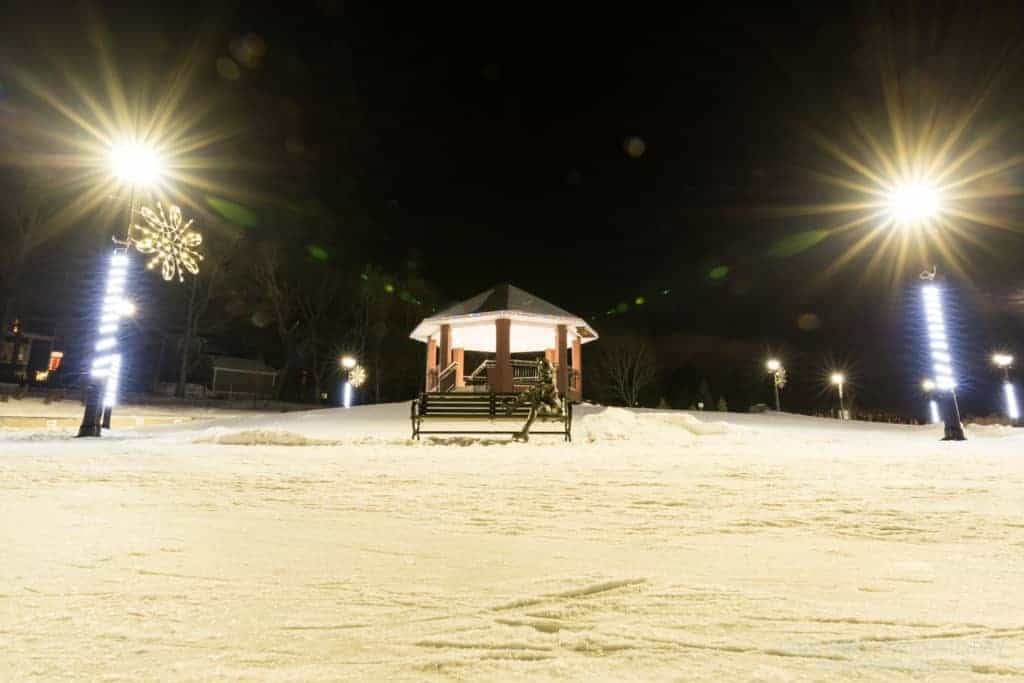
The top image is without the filter, and the bottom image is with the filter. As you can see both images have some significant flaring caused by the lights, and maybe some dust inside my lens. But a side by side comparison of both images doesn't seem to show much if any, additional flaring or ghosting caused by the filter.
A Cautionary Note
I want to give a cautionary note to anyone considering these filters. The NiSi filters are made of 2mm thick glass. If you aren't careful glass will break. I learned this lesson early on when I put another NiSi filter in the case it came with and tossed it into my backpack. Only to discover when I arrived at my location that it had cracked. If you are going to use these or any other glass filter then I strongly recommend getting the NiSi hard case to protect your filters. The case that comes with them doesn't do that great of a job if they get dropped, stepped, on, or if you toss something in your bag on top of them. You can get the hard case on Amazon here: https://www.amazon.com/NiSi-Leather-Polarizer-filters-Suitable/dp/B017GZVUQE/ref=sr_1_1?ie=UTF8&qid=1517583935&sr=8-1&keywords=nisi+case
Pros and Cons
Pros
- Works really well at reducing yellow cast from streetlights and other light sources
- Reduces light pollution fairly well also to bring out detail in night sky and stars
- Maintains sharpness
- Little to no ghosting or flaring
- Available in multiple sizes and shapes
- NiSi has filter holders for most ultra wide angle lenses including the Nikon 14-24, Tamron 15-30, Sigma 20mm etc.
- Fits most 2mm square filter holders, though the NiSi filter holders work amazing.
- Cheaper than most of its competition
Cons
- Adds a magenta cast to the image, but it is easily corrected in post
- Comes with a soft case that may not protect the filter in all situations
- May break if not cared for properly
Overall Impressions
Overall I have to say the NiSi Natural Night filter has quickly become a part of my workflow whenever I am shooting after dark. So much so that during the last few outings I had to remind myself to take it off the camera in order to get some before shots to use as comparisons. My last couple of trips I even forgot to take it off the camera entirely and used it for every shot. I am quite impressed and happy with the resulting images I have been getting with this filter and will continue to use it when shooting nightscapes. I am particularly excited to see how it handles milky way shots in the spring. I wish I could have tested some milky way shots for this review but if it performs half as well as I expect it to I will be happy. Do you absolutely need a Natural night filter if you are a nigh photographer? I'm going to say no. There are plenty of night photographers, myself included, who have shot for years without one. but if you want to add an extra dimension to your night images, create more natural looking nightscapes, and shoot in locations that were more challenging for night shooters, I would strongly recommend one.
You can get your own Natural Night filter on Amazon by clicking this link: https://www.amazon.com/s/ref=nb_sb_noss/140-0748022-2933600?url=srs%3D8537369011%26search-alias%3Dspecialty-aps&field-keywords=natural+night
And if you don't have a holder yet, you can grab a great one here as well: https://www.amazon.com/s/ref=nb_sb_noss?url=srs%3D8537369011%26search-alias%3Dspecialty-aps&field-keywords=holder
Disclosure
I want to make a full disclosure that I am a NiSi ambassador and did receive my holder and filter free of charge prior to writing this review. But I did not let that influence my opinion of the system or this review. I am confident that I have given a full and honest review of the system, pointing out all the pros and cons of the filter so that you can make an informed choice on whether this filter will work for you. If I were not an ambassador I would have still purchased this system for myself.

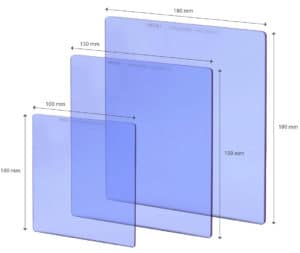
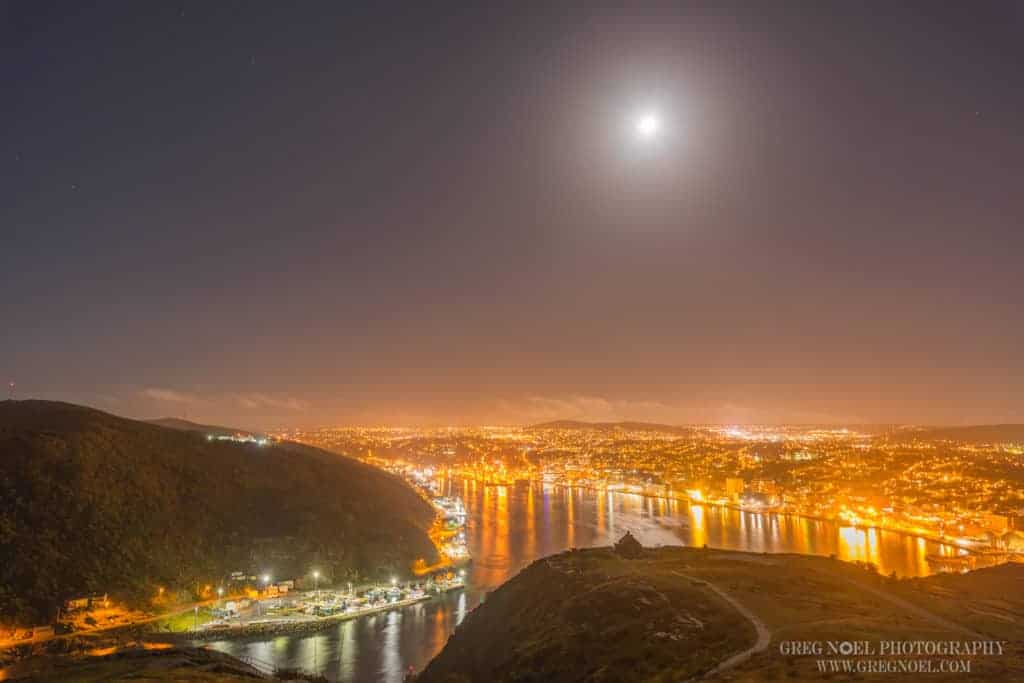
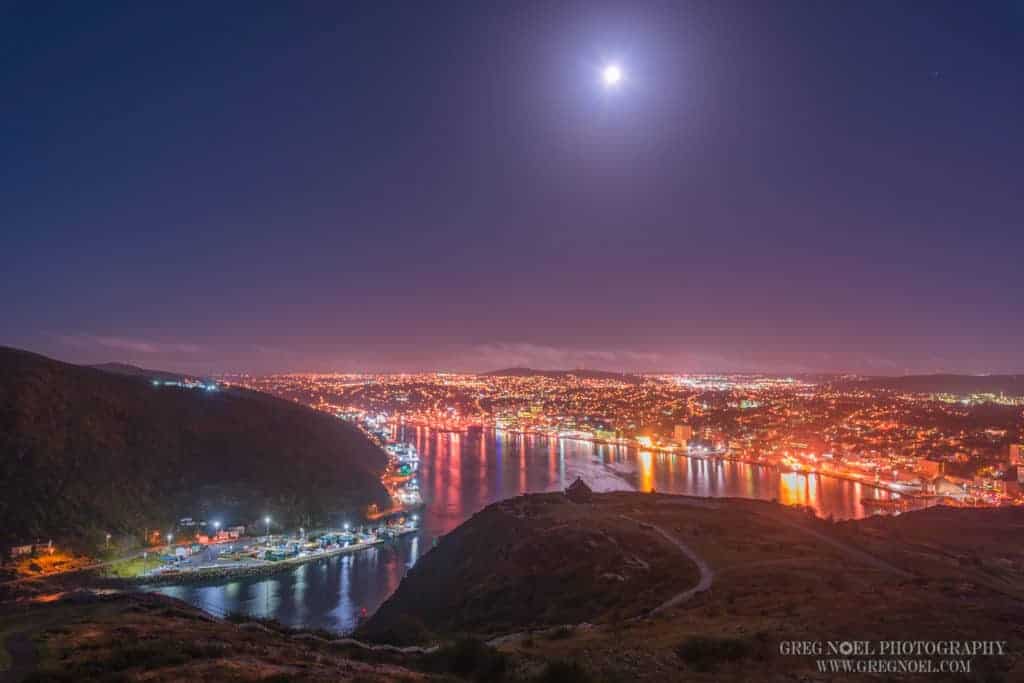
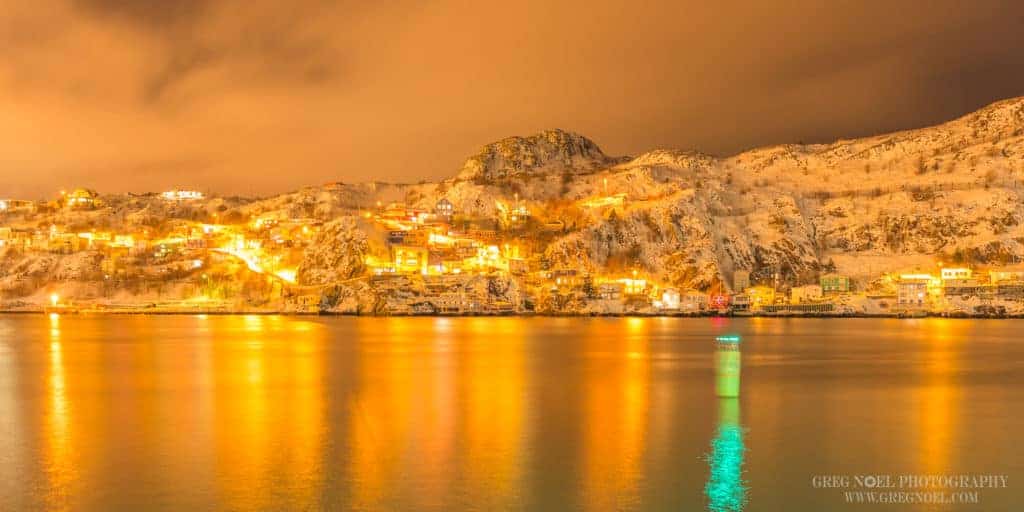
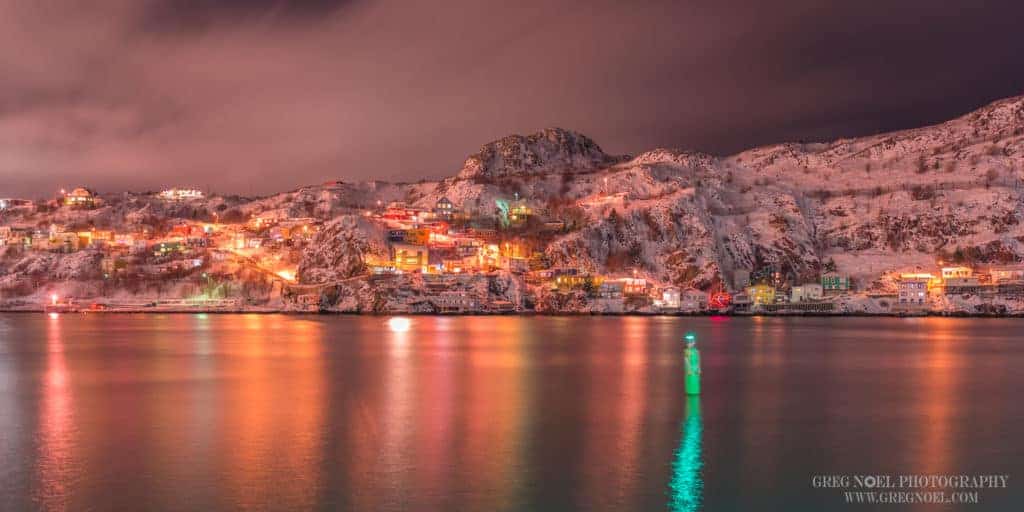
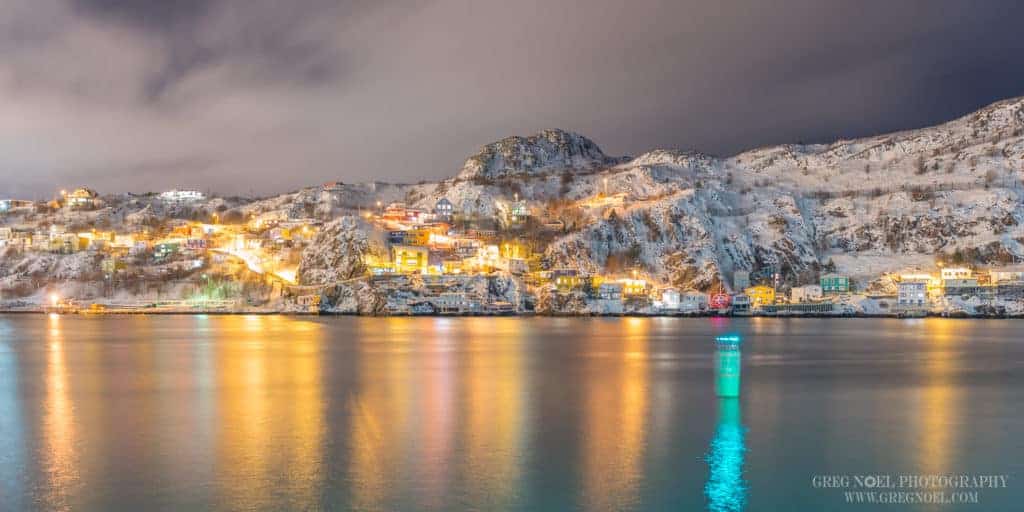
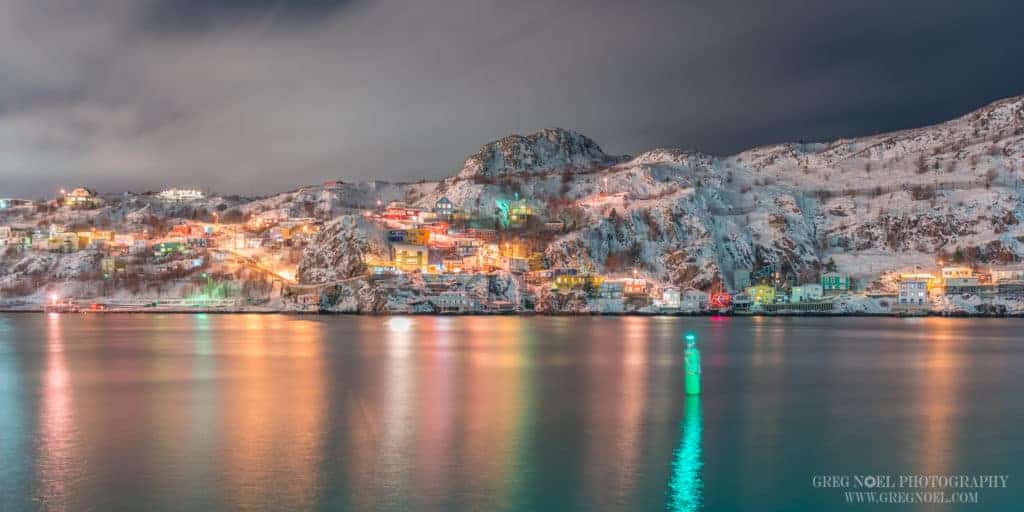
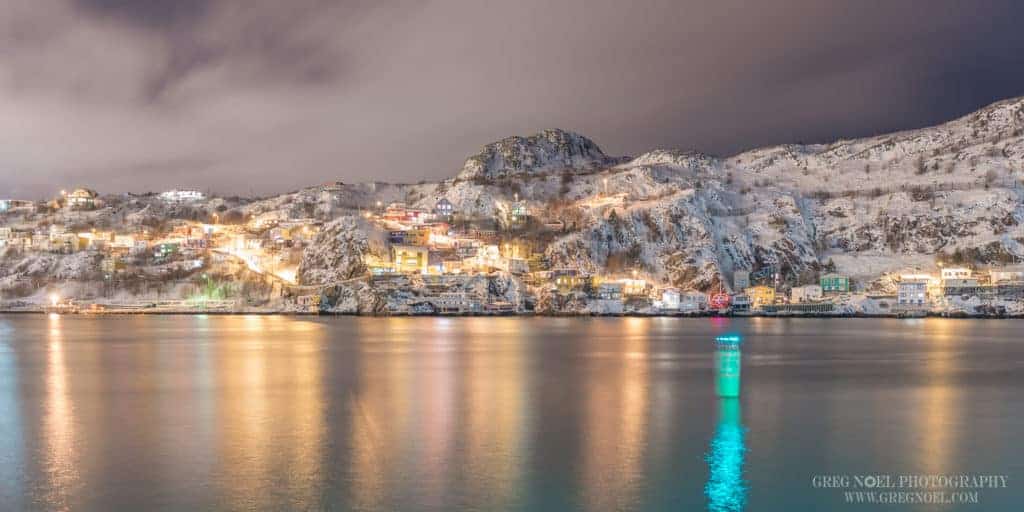
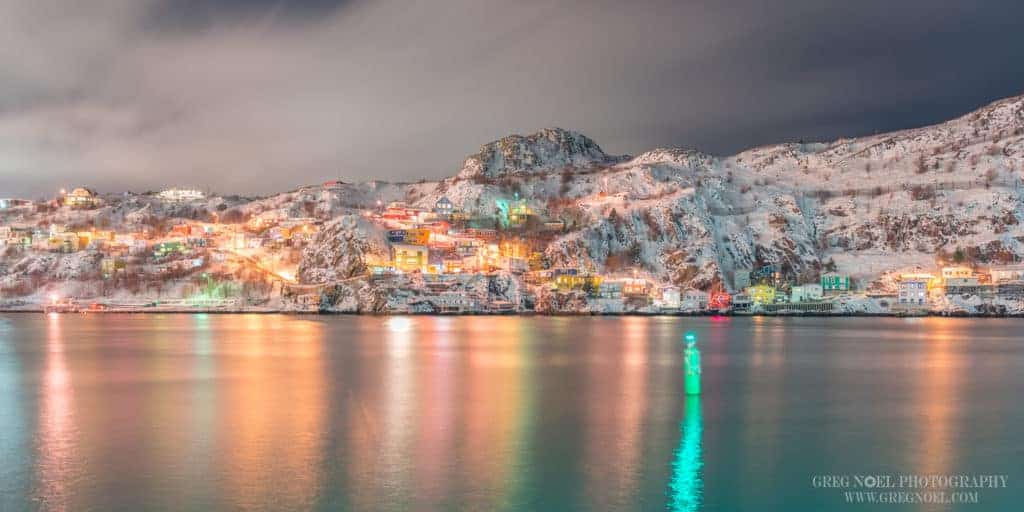
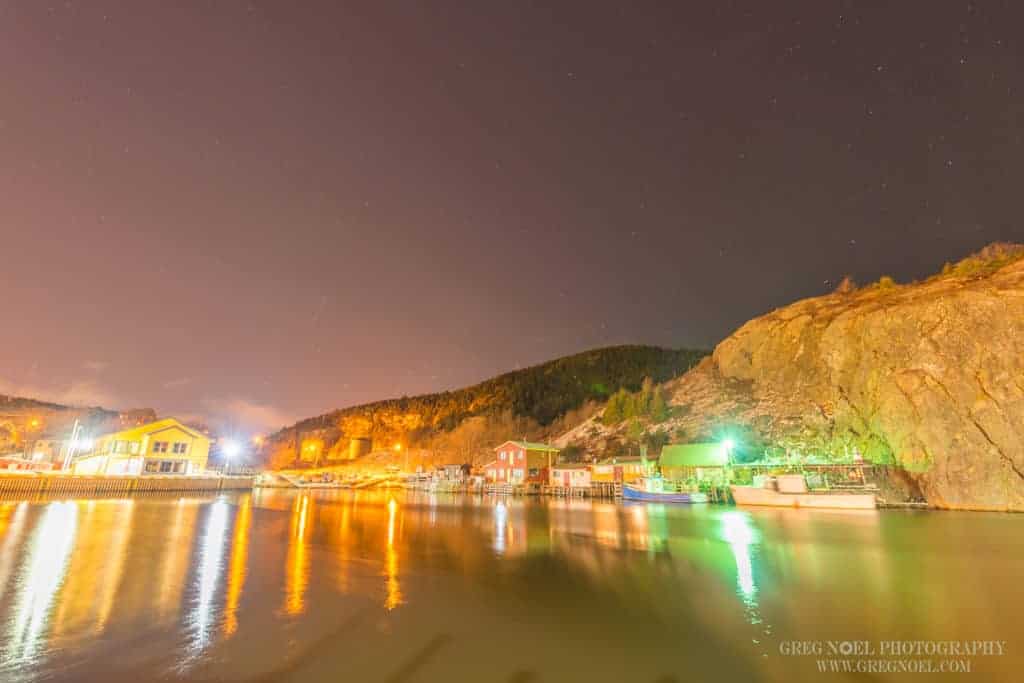
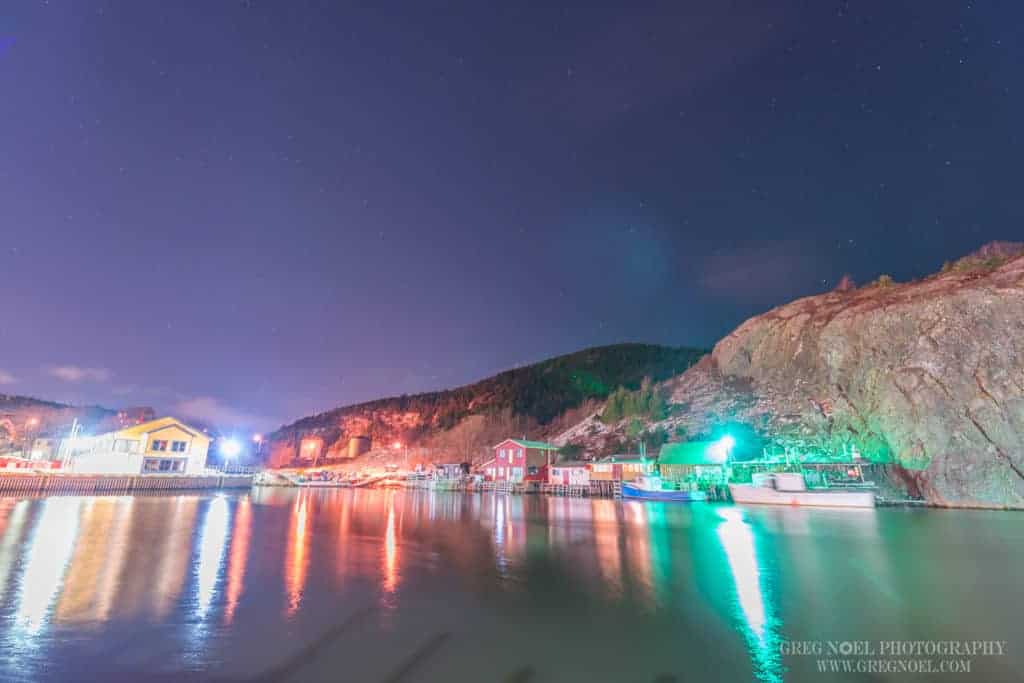
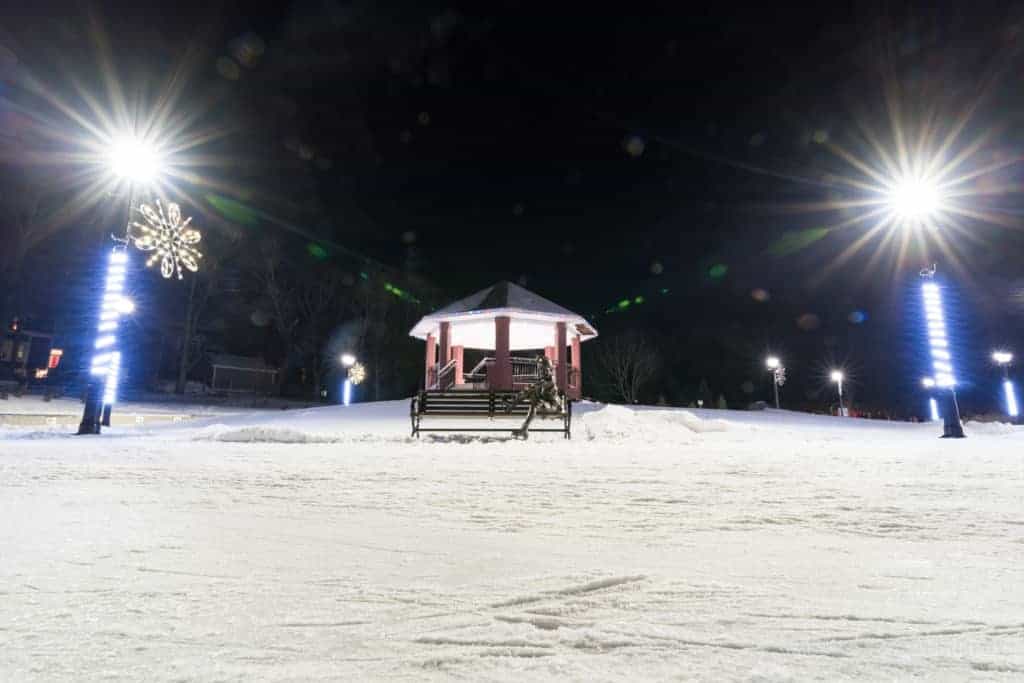
Greg,
I believe you have given a fair and honest review. I would suggest you put the part of your disclosure that you are an ambassador in the beginning of your review and the fact you received one free of charge. You would certainly leave the part about still purchasing it in the end.
Looks like a nice product.
Thanks
Thank you Greg for the review. I’ve been considering getting this filter but was unsure if it was worth it. Looking at your sample images has me convinced it is for what I shoot.